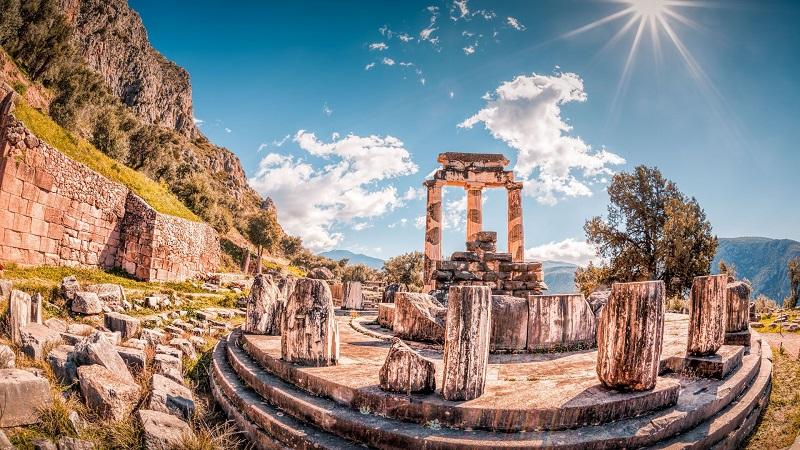Top historical sites in Greece worth visiting
Greece is certainly not short of historical sites that have stood the test of time. From the grandeur of ancient temples to the splendor of Byzantine churches, the country offers a journey through thousands of years of history. Greece’s historical landmarks represent its rich past but also a window into the development of art, architecture, philosophy, and politics that have shaped the modern world.
Plan this trip with the Secret World app Organizza questo viaggio con l’app Secret World Organiza este viaje con la app Secret World Préparez ce voyage avec l’app Secret World Планируйте это путешествие в приложении Secret World 用 Secret World App 规划这次旅行
🌍 Secret World — the world’s largest digital travel guide, with millions of curated places, itineraries, and local stories. 🌍 Secret World — la più grande guida di viaggio digitale al mondo, con milioni di luoghi selezionati, itinerari e storie locali. 🌍 Secret World — la guía de viaje digital más grande del mundo, con millones de lugares seleccionados, itinerarios e historias locales. 🌍 Secret World — le plus grand guide de voyage numérique au monde, avec des millions de lieux sélectionnés, d’itinéraires et d’histoires locales. 🌍 Secret World — крупнейший в мире цифровой путеводитель с миллионами отобранных мест, маршрутов и локальных историй. 🌍 Secret World —— 全球最大的数字旅行指南,汇集数百万精选景点、行程和本地故事。
See all the places from this guide on an interactive map, save them to your own trip, and discover more hidden spots nearby. Guarda tutti i luoghi di questa guida su una mappa interattiva, salvali nel tuo itinerario e scopri altri posti nascosti nei dintorni. Ve todos los lugares de esta guía en un mapa interactivo, guárdalos en tu propio viaje y descubre más rincones ocultos cerca de ti. Voyez tous les lieux de ce guide sur une carte interactive, enregistrez-les dans votre voyage et découvrez encore plus de pépites cachées à proximité. Смотрите все места из этого гайда на интерактивной карте, сохраняйте их в своё путешествие и находите ещё больше скрытых локаций рядом. 在互动地图上查看本指南中的所有地点,把它们保存到自己的行程,并发现更多附近的隐藏景点。
From ancient temples to sprawling ruins each site represents events that shaped this remarkable nation. For history enthusiasts, Greece is a treasure trove waiting to be explored. This article explores some of the most significant historical sites in Greece.
The Acropolis of Athens
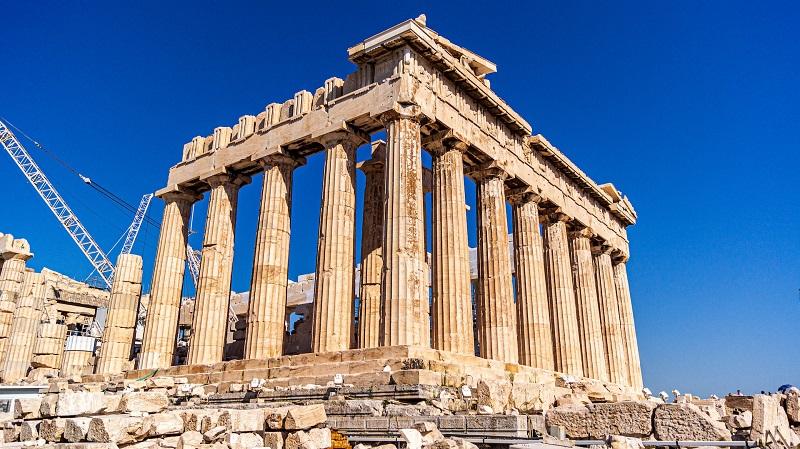
The Acropolis of Athens is perhaps the most iconic historical site in Greece. This ancient citadel dominates the Athenian skyline and is a symbol of classical Greece. The most famous structure on the Acropolis is the Parthenon, a temple dedicated to the goddess Athena, who was considered the patroness of the city.
Constructed in the 5th century BCE during the Golden Age of Pericles, the Parthenon is famous for its architectural precision and the harmony of its proportions. Visitors to the Acropolis can also explore other significant buildings such as the Erechtheion, known for its Caryatid Porch, and the Temple of Athena Nike.
The Acropolis Museum, located nearby, houses many of the original sculptures and artifacts, providing deeper insights into ancient Greek art and culture. The Acropolis not only represents the artistic and architectural achievements of ancient Greece but also the legacy of Athenian democracy and philosophical thought.
Delphi
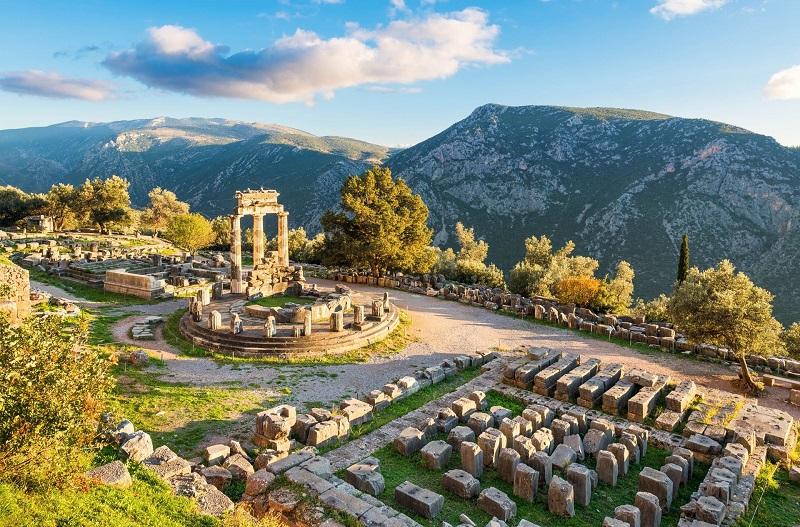
Delphi was once considered the center of the world by the ancient Greeks and is one of the most significant archaeological sites in Greece. Delphi was home to the famous Oracle, where the priestess Pythia would deliver prophecies under the influence of the god Apollo. The site includes the Temple of Apollo and the ancient theater, which hosted various cultural events and could seat up to 5,000 spectators.
Additionally, the Delphi Archaeological Museum houses numerous artifacts discovered at the site, including the renowned Charioteer of Delphi statue. Delphi was not only a major religious center but also a place of political importance, attracting leaders from across the Greek world.
Today, Delphi’s ruins and its breathtaking mountain setting continue to captivate visitors, offering a profound connection to the spiritual and cultural practices of ancient Greece.
Olympia
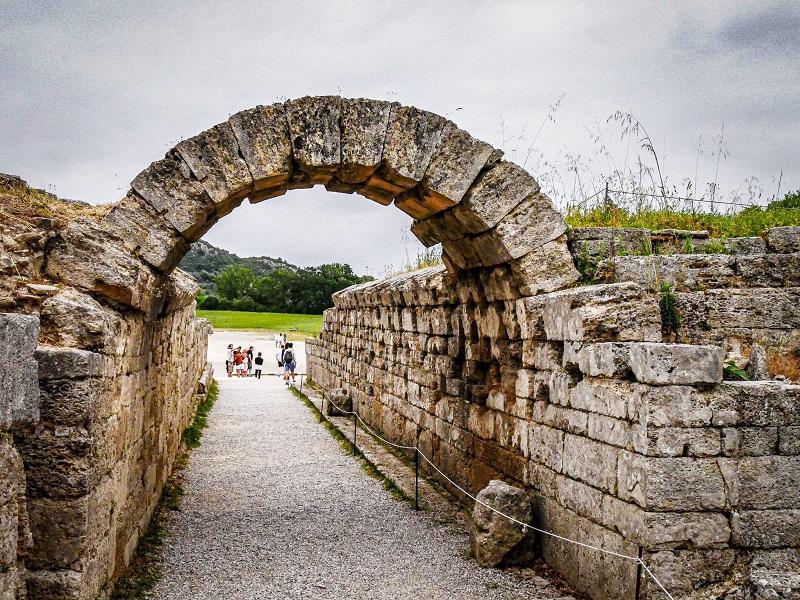
Olympia is another cornerstone of Greece’s historical and cultural heritage. It was the site of the original Olympic Games, which were held every four years beginning in 776 BCE. These games were part of a religious festival honoring Zeus, the chief deity of the Greek pantheon.
The site includes the remains of several important structures such as the Temple of Zeus, which once housed the enormous statue of Zeus. It is also one of the Seven Wonders of the Ancient World. The stadium where the athletic competitions took place is still visible, allowing visitors to imagine the magnificence of the ancient games.
The Archaeological Museum of Olympia contains a vast collection of artifacts. It includes sculptures, votive offerings, and other objects that provide insight into the religious and athletic life of ancient Greece. Olympia is not only a symbol of ancient athleticism and religious devotion but also a reminder of the enduring legacy of the Olympic Games.
Knossos
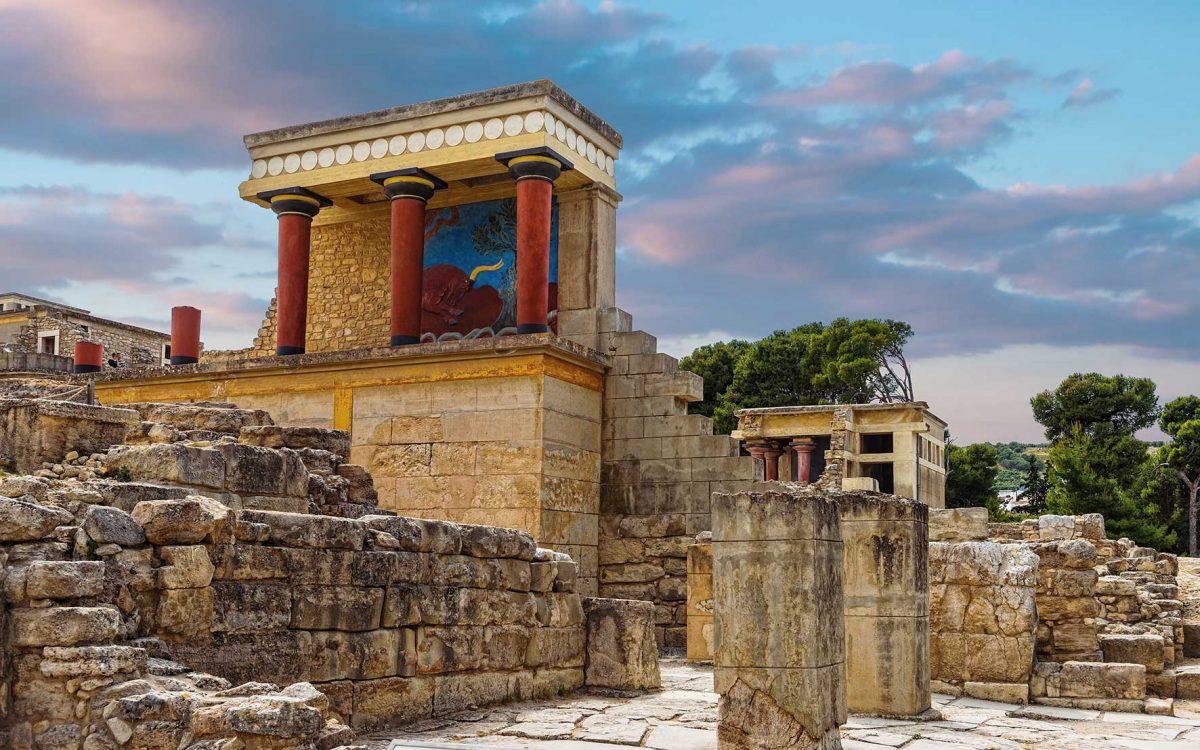
The ancient city of Knossos is the largest Bronze Age archaeological site in Greece and is considered Europe’s oldest city. Knossos is most famous for its palace, which is believed to have been the ceremonial and political center of the Minoan civilization. The palace complex, with its elaborate layout, advanced plumbing system, and vibrant frescoes, provides a fascinating look into Minoan culture.
One of the most intriguing aspects of Knossos is the myth of the Minotaur, a creature that was said to dwell in a labyrinth beneath the palace. According to legend, the hero Theseus slew the Minotaur, ending the tribute of Athenian youths to the Minoan king.
The archaeological findings at Knossos, including intricately decorated pottery, tools, and linear scripts, have greatly enhanced our understanding of the Minoan civilization. Today, the ruins of Knossos attract thousands of visitors who come to explore its maze-like structures and to delve into the myths and history of ancient Crete.
Mycenae
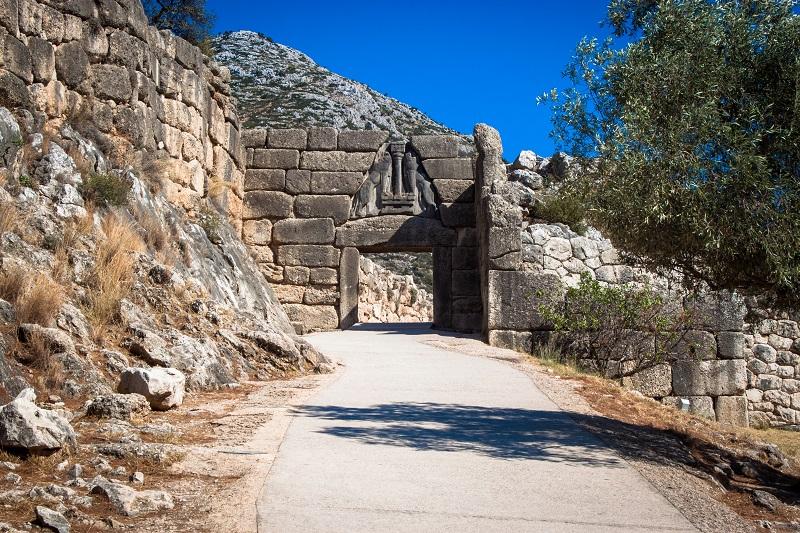
Mycenae was a major center of Greek civilization from the 15th to the 12th century BCE. It is famous for its imposing ruins and its role in Homeric epics. Mycenae is often associated with the legendary king Agamemnon, who led the Greek forces during the Trojan War.
The site is dominated by the massive Lion Gate, the main entrance to the citadel, which is flanked by two sculpted lions. Inside the citadel, you can explore the remains of the royal palace, grave circles, and various other structures. One of the most significant discoveries at Mycenae is the so-called “Mask of Agamemnon.”
It is a gold funerary mask found in one of the grave circles and is now housed in the National Archaeological Museum in Athens. Mycenae’s sophisticated fortifications, monumental architecture, and rich tombs reflect the wealth and power of the Mycenaean civilization. The site offers a captivating glimpse into the world of ancient Greek mythology and the early stages of Greek history.
Meteora
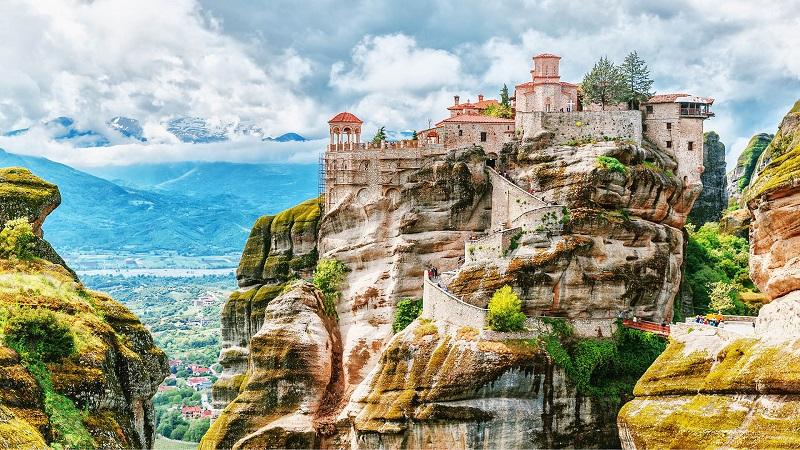
Meteora is a UNESCO World Heritage site and one of the grandest places in Greece. Meteora is famous for its monasteries perched atop towering rock formations. These monasteries were established in the 14th century by monks seeking solitude and spiritual retreat.
Today, six of the original twenty-four monasteries are still active and open to visitors. The largest and most significant of these is the Great Meteoron Monastery, which houses a museum showcasing religious artifacts and manuscripts. The other monasteries, such as Varlaam, Rousanou, and St. Stephen, are also remarkable for their architectural beauty and serene surroundings.
The breathtaking landscape of Meteora adds to the mystical and spiritual ambiance of the site. Visitors to Meteora can explore the monasteries, hike the trails, and enjoy panoramic views of the surrounding area. Meteora is not only a site of religious significance but also a natural wonder that continues to inspire awe and admiration.
Greece awaits
Greece’s historical sites are more than just remnants of the past but vibrant storytellers of a profound civilization. As you traverse these historic sites, you’ll witness the grandeur of ancient architecture and gain an understanding of the philosophical, religious, and social foundations that shaped this civilization.
Take this guide with you on the road Porta questa guida con te in viaggio Lleva esta guía contigo en el viaje Emportez ce guide avec vous sur la route Возьмите этот гид с собой в путешествие 旅途中随身携带本指南
Don’t just read about this place – use this guide while you’re actually there. Non limitarti a leggere di questo luogo: usa questa guida mentre sei davvero lì. No te limites a leer sobre este lugar: usa esta guía mientras estás realmente allí. Ne vous contentez pas de lire sur ce lieu : utilisez ce guide quand vous êtes vraiment sur place. Не просто читайте об этом месте — используйте этот гид, когда вы действительно здесь. 不要只在网上看看这个地方——真正到访时也用这份指南。
- See all these places on a live interactive map
- Vedi tutti questi posti su una mappa interattiva in tempo reale
- Ve todos estos lugares en un mapa interactivo en vivo
- Voyez tous ces lieux sur une carte interactive en temps réel
- Смотрите все эти места на интерактивной онлайн-карте
- 在互动地图上查看所有这些地点
- Save this guide as a trip and edit it on the go
- Salva questa guida come itinerario e modificala in qualsiasi momento
- Guarda esta guía como un viaje y edítala sobre la marcha
- Enregistrez ce guide comme itinéraire et modifiez-le à tout moment
- Сохраняйте этот гид как маршрут и редактируйте его в пути
- 将本指南保存为自己的行程,并随时编辑
- Discover more hidden spots around you with one tap
- Scopri altri posti nascosti intorno a te con un solo tap
- Descubre más rincones ocultos a tu alrededor con un solo toque
- Découvrez encore plus de lieux cachés autour de vous en un seul clic
- Находите ещё больше скрытых локаций вокруг одним касанием
- 一键发现你周围更多隐藏景点
